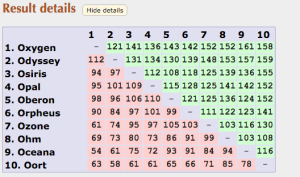In early September, CNCF will be announcing the founding class of Kubernetes Certified Service Providers (KCSPs). If your company provides professional services to support Kubernetes deployments, please consider signing up to become part of the founding class.
The main benefits of becoming a KCSP are:
- Placement in a new section at the top of https://kubernetes.io/partners/
- Monthly meetings with cloud native project leaders, TOC members,
and representatives from the CNCF Governing Board - Access to leads from end users looking for support
Requirements are:
- Three or more engineers who pass the Certified Kubernetes Administrator (CKA) exam
- Demonstrable activity in the Kubernetes community including active contribution
- A business model to support enterprise end users, including putting engineers at a customer site
The CKA exam is about to enter early release beta testing prior to the public release in September. It is an online, proctored, performance-based test that requires solving multiple issues from a command line. It takes 3 to 4 hours to complete, and costs $300, though a discount is available for beta testers to $100.
If your company is interested in becoming a KCSP, please do the following 4 things:
- Ensure that your company is listed at https://kubernetes.io/partners/
and if not (or if the listing should be updated), please do so via the link
at the top of that page. - Have 3 or more of your Kubernetes experts sign up for the beta test at:
https://docs.google.com/forms/d/e/1FAIpQLSd9-6nL5L3SzWIddCSPoKeuX_Pdq_KHI8C4mQzcUryP-gu0dQ/viewform
.Please have them use their company email so we can properly associate
them. Within a week, we will send beta test dates, a discount coupon code, and instructions to register and schedule. - Register your interest in becoming a KCSP at this form: https://docs.google.com/forms/d/e/1FAIpQLSfai-zlNuvP-q0fz3jw89v3v4m_wYaF7tOBmNY0WoKsZgeQUQ/viewform
- If you are not already on it, and want to track progress of the certification program over time, please subscribe to the Kubernetes Certification Working Group list: https://lists.cncf.io/mailman/listinfo/cncf-kubernetescertwg.
Questions or issues? Please email cncf-kcsp-support at lists.cncf.io
Thanks!



 Pending legal approval, Eclipse Oxygen will be the name for Neon+1
Pending legal approval, Eclipse Oxygen will be the name for Neon+1